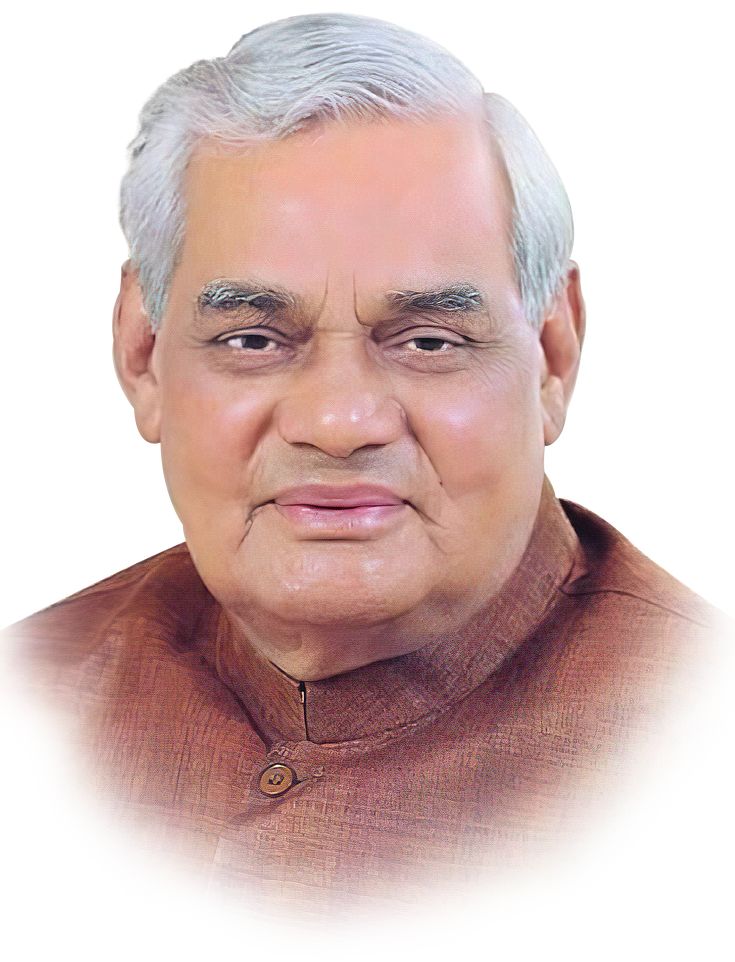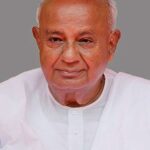Atal Bihari Vajpayee: A Visionary Leader Who Shaped India’s Modern Identity
Atal Bihari Vajpayee, the 10th Prime Minister of India, is widely regarded as one of the most influential leaders in the history of modern India. With a career spanning over six decades, his contributions to Indian politics, governance, and global diplomacy left an indelible mark on the country’s trajectory. Known for his eloquent speeches, visionary leadership, and pragmatic approach to governance, Vajpayee’s legacy continues to resonate across generations.
Early Life and Education
Atal Bihari Vajpayee was born on December 25, 1924, in Gwalior, Madhya Pradesh, into a middle-class family. His father, Krishna Bihari Vajpayee, was a school teacher, and his mother, Krishna Devi, was a deeply religious woman. Growing up in a family that valued education, Atal was an avid reader and excelled academically. He was particularly drawn to literature and poetry, an interest that later defined much of his political career.
Vajpayee completed his early schooling in Gwalior and later went on to study at the prestigious DAV College in Kanpur, where he completed his B.A. in Political Science. His intellectual prowess and passion for social issues soon led him to become involved in the Rashtriya Swayamsevak Sangh (RSS), a right-wing Hindu nationalist organization. Vajpayee’s political ideologies were shaped by his association with the RSS, where he imbibed the values of nationalism, service to the country, and social welfare.
Political Journey
Vajpayee’s political career began at a young age, and his journey through India’s complex political landscape was both eventful and transformative. He joined the Bharatiya Janata Party (BJP) when it was founded in 1980, having already been an active participant in the Janata Party before its formation. His association with the BJP was pivotal, and he emerged as a key figure within the party.
In 1996, Vajpayee first became the Prime Minister of India, although his government lasted only 13 days. However, his persistence and resilience were evident, and in 1998, he became the Prime Minister once again, this time with a stronger mandate. Under his leadership, India witnessed numerous economic, diplomatic, and strategic transformations.
Key Achievements and Contributions
Economic Reforms and Infrastructure Development
During Vajpayee’s tenure as Prime Minister, India’s economy experienced steady growth. He pushed for significant infrastructure projects, most notably the Golden Quadrilateral project, which aimed to connect four major cities—Delhi, Mumbai, Chennai, and Kolkata—with a network of highways. This project transformed the transportation sector, improving connectivity and boosting economic activities across the country.
Vajpayee also played a key role in the privatization of several public sector enterprises, which helped stimulate growth and brought in foreign investments. His government’s policies encouraged the development of the IT and services sectors, which played a significant role in India’s rise as a global economic power.
Nuclear Tests and National Security
One of Vajpayee’s most controversial yet defining moments came in 1998 when India conducted a series of nuclear tests in Pokhran, Rajasthan. The tests were a bold statement of India’s intent to assert itself as a nuclear power. While these tests were met with international criticism and sanctions, Vajpayee believed they were essential for India’s national security and global standing. His decision to carry out the nuclear tests reflected his commitment to safeguarding India’s sovereignty and ensuring its position as a strong global player.
Strengthening India’s Global Relations
Vajpayee was not only a skilled domestic leader but also a master of foreign diplomacy. His government worked towards improving ties with neighboring countries, including Pakistan. The Lahore Declaration of 1999, signed by Vajpayee and then-Pakistani Prime Minister Nawaz Sharif, was a significant step in reducing tensions between the two nations. However, the Kargil War, which erupted later that year, was a reminder of the complexities of Indo-Pakistani relations. Despite the war, Vajpayee’s government worked towards maintaining peace and stability in the region.
On the global stage, Vajpayee strengthened India’s ties with the United States and other key international players. His foreign policy focused on fostering better relations with developed countries while also maintaining India’s commitment to non-alignment and its own national interests.
Vajpayee’s Leadership Style
Atal Bihari Vajpayee’s leadership style was characterized by his calm demeanor, intellectual depth, and unflinching commitment to his principles. He was known for his oratory skills and his ability to inspire people through his speeches. His poetic sensibility and wisdom were often reflected in his addresses to the nation, which left a lasting impact on millions of Indians.
He was also a leader who valued consensus and collaboration. Despite his firm political convictions, Vajpayee was known for his ability to build bridges across political ideologies. His leadership was marked by his diplomatic approach, whether it was in foreign relations or within the domestic political sphere.
Challenges and Legacy
Vajpayee’s political career was not without its challenges. He faced numerous setbacks, including opposition from rival parties, internal party conflicts, and the pressure of leading a coalition government. However, his resilience and ability to navigate these challenges earned him the admiration of his peers and political opponents alike.
Vajpayee’s legacy is multi-faceted. He is remembered not just for his political acumen and leadership during times of crisis but also for his contribution to India’s growth and modernization. His emphasis on infrastructure development, economic reforms, national security, and foreign policy laid the foundation for India’s growth in the 21st century. Even after his tenure as Prime Minister ended, his influence on Indian politics and governance continued to be felt.
FAQs About Atal Bihari Vajpayee
Q1: What were some of the major achievements of Atal Bihari Vajpayee as Prime Minister?
Vajpayee is credited with initiating major infrastructure projects like the Golden Quadrilateral, conducting successful nuclear tests in 1998, and strengthening India’s foreign relations, particularly with the United States and Pakistan.
Q2: How did Atal Bihari Vajpayee’s leadership impact India’s economy?
Under his leadership, India saw substantial economic reforms, privatization of public sector enterprises, and significant growth in the IT and services sectors, contributing to India’s rise as a global economic power.
Q3: What was Vajpayee’s role in Indo-Pakistani relations?
Vajpayee worked towards reducing tensions with Pakistan, notably through the Lahore Declaration of 1999. However, the Kargil War later that year presented a major challenge in Indo-Pakistani relations.
Atal Bihari Vajpayee’s leadership was defined by his commitment to India’s progress and his ability to navigate both domestic and international challenges with poise and determination. His tenure as Prime Minister not only shaped the modern identity of India but also ensured that the country remained on a path of growth, diplomacy, and self-reliance. Even years after his passing in 2018, Vajpayee’s vision continues to inspire the people of India and the world.










